Everything you need to know about charging an electric car, from where you can charge up, to how long it takes - and how much it will cost you.
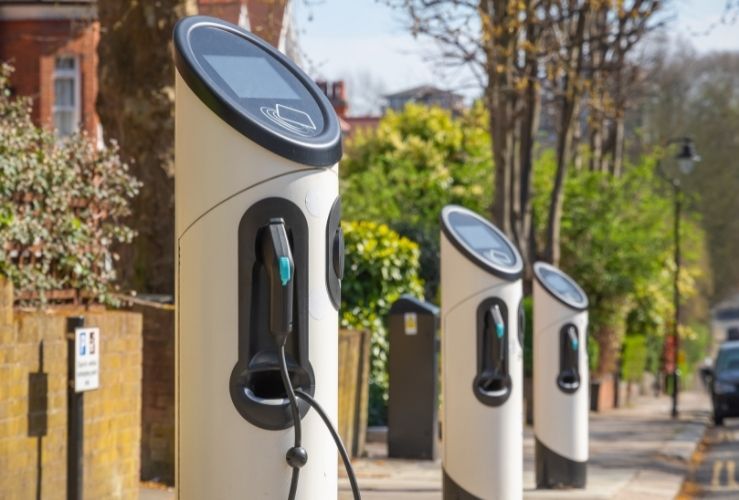
With a ban on sales of new petrol and diesel cars set for 2030, the UK government is building out the nation’s electric car charging infrastructure. And while there is some way to go, there are already more than 35,000 charge point connectors across the United Kingdom, in 13,000+ locations. Over 7,000 charge connectors were installed last year alone, many of which were the new super-fast 150-350kW charger types.
Hopes that the charging network will expand quickly have been bolstered by the PM Boris Johnston, who has said he wants every citizen to be within 30 miles of a charge point.
Paid and free charge points
Charging an electric car is considerably cheaper than filling up a fuel-based vehicle. But the actual cost can vary, depending on if you have a subscription to a charge network; use pay-per-use charge points; plug-in to a home charger; or use a free charger - as found in many supermarket car parks, shopping centres etc. Note that "free-to-use'' charge points may require an in-store purchase or similar.
Pod Point estimates that charging up a typical EV with a 60kWh battery and ~200 mile range costs:
- At home: £9.20 for a full charge
- Rapid charging at a motorway service station: £6.50 for 30 mins, 100 miles range
- At work: often provided free
- In public areas such as car parks, leisure centres: often provided free
* Costs calculated at 17p/kWh based on usable battery is ~54kWh (90%).
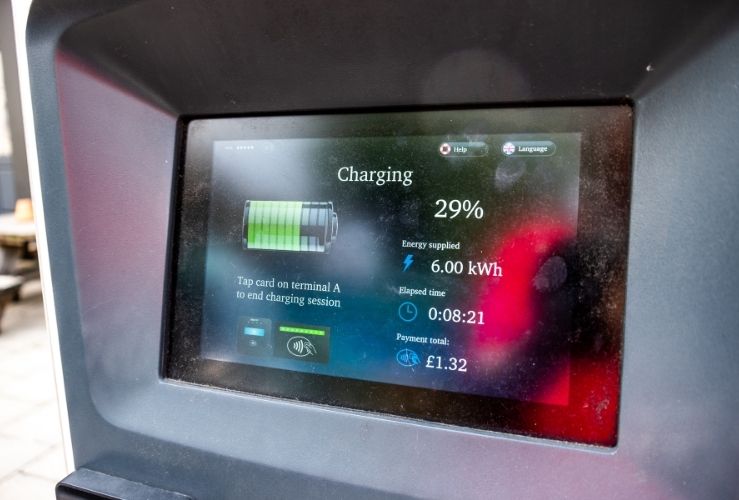 Credit: William - stock.adobe.com
Credit: William - stock.adobe.com
Compared to filling up a petrol or diesel car - which takes a few minutes - electric cars can take a while to charge. However, most EV drivers charge up their vehicle when not in use - such as when parked at home or while in the office, in the same way one routinely charges up a smartphone overnight. New rapid chargers, however, can give a car an 80% charge in just 30 minutes - and as charging technology improves, this time will reduce further. Indeed, a battery recently developed by Penn State University delivers a charge of 250 miles' range in just 10 minutes.
Many EV drivers don't wait until their battery is nearly empty before charging - they simply top-up their battery on a daily or nightly basis. In a sense this is more convenient than a fuel-based vehicle - where you need to to visit a petrol station every time the tank is empty.
- The charger's power rating
- How far you drive between charges
- Whether you top-up frequently or wait until the battery is empty each time
- Battery capacity
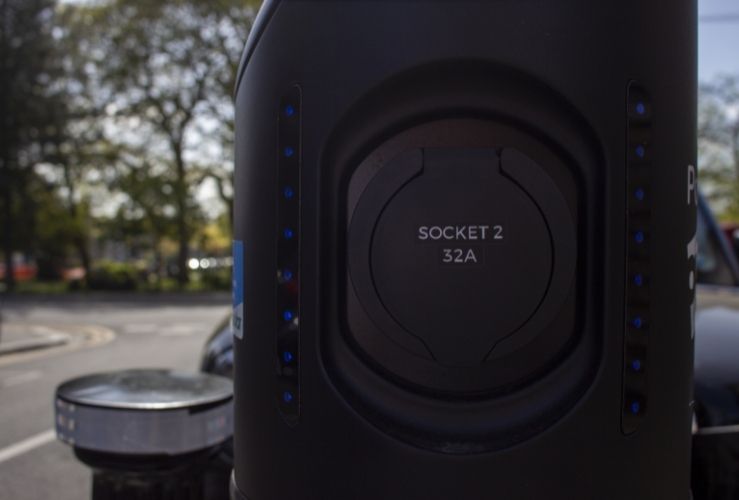
- A standard 3-pin plug inserted into a 13 Amp socket (slowest charge times)
- Socketed - a charge point to which you can connect a Type 1 or Type 2 cable (faster charge times)
- Tethered - a charge point with a Type 1 or Type 2 cable attached (faster charge times)
Slow: This is generally the 3-pin plug type - typically rated up up to 3kW. A slow but convenient approach for when parking overnight at home or during the day at work. 8 - 10 hours.
Fast: Rated 7kW or 22kW, you'll find these charger types in supermarkets, leisure centres and car parks. If you have off-street parking then installing a Fast charge point could make sense, although you may need to upgrade your home’s electrical system to ‘three phase” (see below) 3 - 4 hours.
Rapid: 43kW rating. These super-fast chargers only work if your EV has the required Rapid charging technology. 30 - 60 minutes.
Your electric car will run out of power more quickly during winter, and will last longer during summer. Essentially this means you'll have more range on your electric vehicle in summertime and less in wintertime.
Wireless charging for smartphones has been around for a while. Similar technology exists for charging electric cars - but it hasn’t quite reached the UK yet. However, in Norway wireless systems are already being installed.
These charging units come with a long cable, with either Type 1 or Type 2 connectors. Most new EVs available in the UK are fitted with Type 2 connectors.
Socket charge points are effectively charging stations with no cables. These systems feature safety systems that protect you and your home's fuse board. These charge points may have both Type 1 and Type 2 connectors, and are compatible with any car that comes with a fast charging cable.
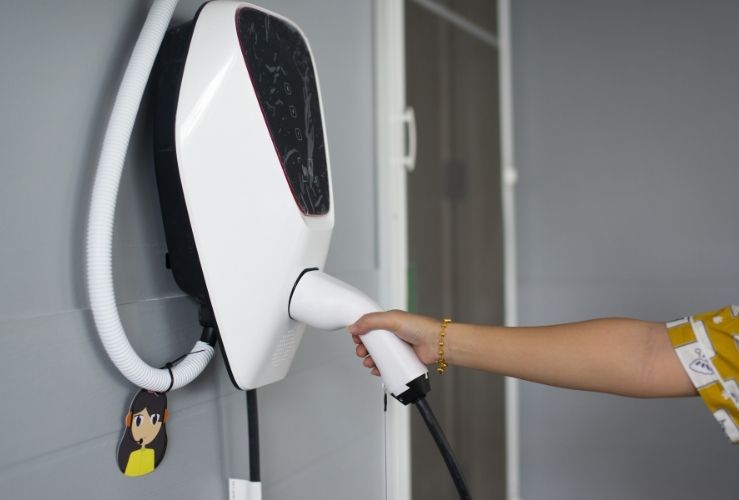
Most UK households have a "single phase" electrical system, which supports 3-7 kW chargers. To support a faster charger, an upgrade to a "three-phase" electrical system may be necessary. However, such upgrades can cost several thousand pounds - and in many areas it may not be technically possible. Additionally, your EV would need to be able to accept faster charging.
Since most home charging takes place overnight, the advantages to upgrading to three-phase might not be worth the cost.
Yes. The UK government through its Electric Vehicle Homecharge Scheme (EVHS) will pay up to 75% of the cost of installing a home charge point for your electric car - up to a maximum of £350.
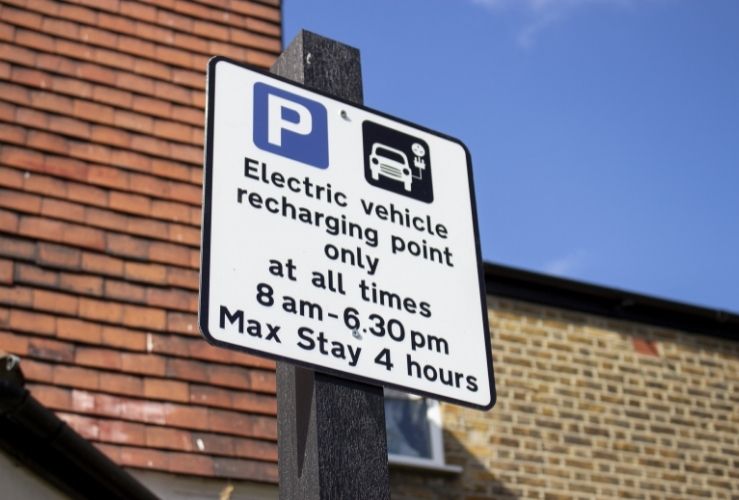
Zap Map presents a live map of charge points across the UK, located everywhere from golf clubs to supermarkets, racecourses to car dealerships. You can also find out if a charge point is currently being used or not. Zap Map is available via the website and a free downloadable app for iOS and Android.





